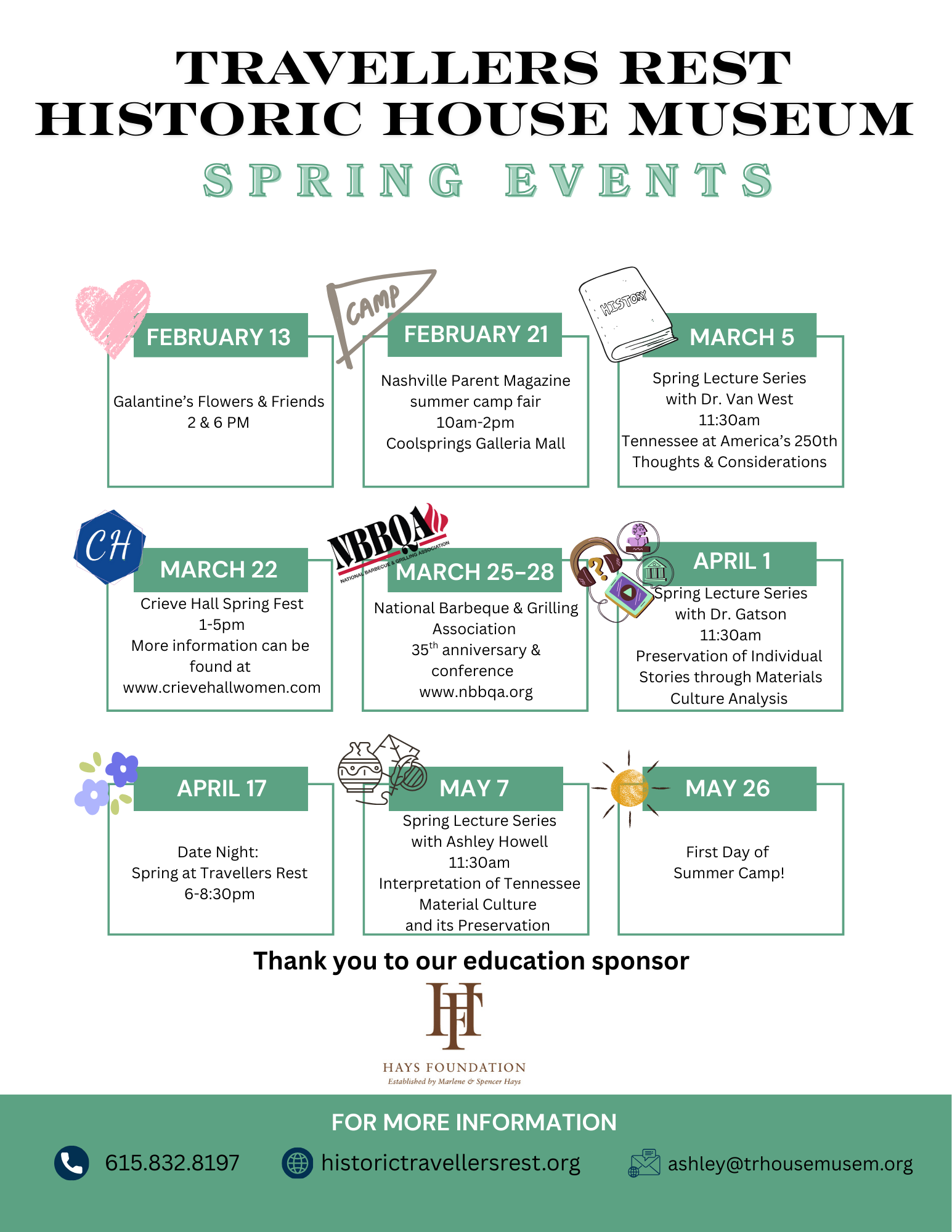Travellers Rest
Historic house and museum

The Oldest Historic House Open to the Public in Nashville
Travellers Rest Historic House Museum is dedicated to preserving and interpreting the Overton home and landscape and serving as a gateway for learners of all ages to explore and experience Nashville's historic past. Our primary focus is history education and we serve more than 12,000 children and adult visitors each year. Our programs and events cover approximately 1000 years of history, from Mississippian period pre-contact settlement through the 19th century using the cultural resources of John Overton’s 1799 home.

Understanding each other through open dialogue
We believe as an historic site we have an obligation to provide a space that welcomes and facilitates open dialogue. We are working every day to more accurately tell the storiesof all former residents of Travellers Rest, including native communities who resided on this land prior to 1799, those enslaved here during the 18thand 19th centuries, and property owners and descendants. Learning from our collective history should lead to a better understanding of our present and allow for continued growth as a community, state, and country.

Educational Opportunities
History of Travellers Rest
1270-1450
The First Residents Of Historic Travellers Rest

From as early as 1270-1316 A.D., more than 500 years before John Overton purchased the land which would later be known as Travellers Rest, the area was occupied by Native Americans during what archaeologists call the Mississippian period (circa 1000-1450 A.D.)
1796-1833
Nashville: From Frontier to Home of the U.S. President

The Native Americans who occupied Travellers Rest in the pre-historic Mississippian cultural period, were no longer present when white settlers began occupying Middle Tennessee. John Overton was among the very early residents of the young city.
1796-1833
Slavery at Travellers Rest: A Past Uncovered

Education is a key component of our mission at Travellers Rest Historic House Museum and provides a path to understand the hardships that enslaved persons endured. Here at Travellers Rest, we strive to respectfully tell the complete story of all the inhabitants of the site.
1796-1833
The American Civil War: “HdQrs: 6 Miles from Nashville On Franklin Pike”

The American Civil War changed nearly everything in the South and deeply impacted the course of American history. Landscapes, farming practices, families, industries, homes, the economy and an entire way of life were radically altered and recovery, for some, would take generations.
1875-1935
Changes in Land & Economy Define the Emerging New South

In the late 19th century, post Reconstruction, the Overton family remained at Travellers Rest and, as did the rest of the Nashville, adapted to a nation entering a new era of industry. The city regained its economic strength and saw significant changes to its neighborhoods, way of life, and industries.
1954 - Now
Discovering Nashville Through the Doors of Travellers Rest

Travellers Rest remained a central part of the Overton family and their descendants until 1946 when J.M. Dickinson, Judge Overton’s great-grandson, sold the property to Dr. John Youmans.
Discover Nashville Differently

Help Preserve the Past for the Future
Your tax-deductible contribution today will help preserve and maintain Travellers Rest Historic House Museum as a premier resource for history in Nashville and Middle Tennessee for generations to come.







.png)